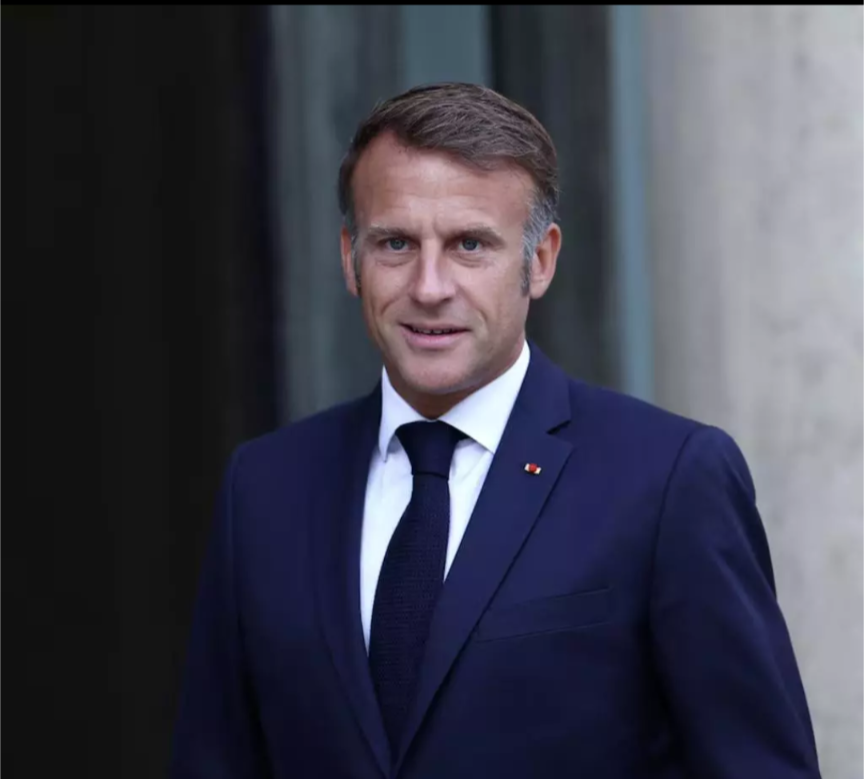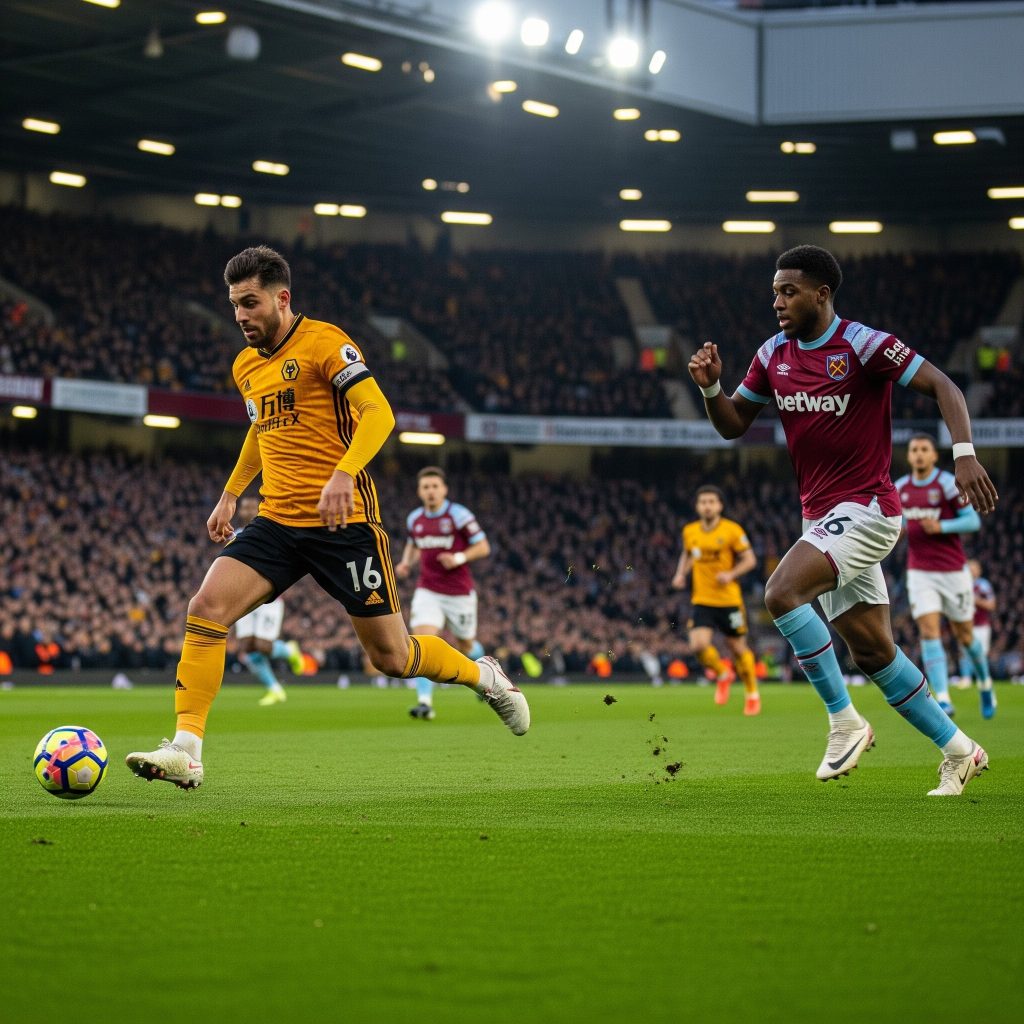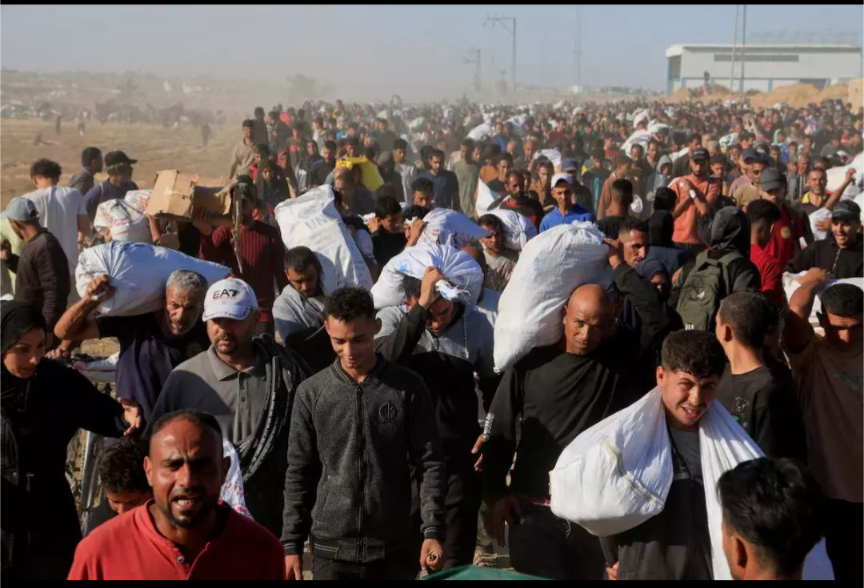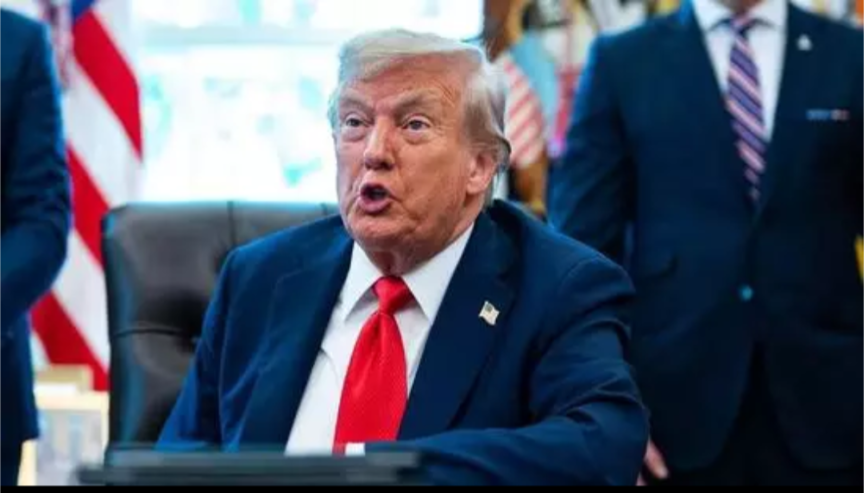Macron warns that if peace talks fail by Monday, it will prove Putin outsmarted Trump amid escalating global tensions.

Global politics is once again at a dangerous crossroads. French President Emmanuel Macron recently issued a stark warning that unless meaningful peace talks begin by Monday, Russian President Vladimir Putin may have successfully “played” former U.S. President Donald Trump. Macron’s words are more than a diplomatic soundbite—they highlight deep tensions not only between Russia and Ukraine but also within the fragile network of Western alliances that includes NATO, the European Union, and the United States.
The statement has raised concerns about the future of peace negotiations, U.S. influence under Trump, and whether Europe can maintain a unified stance. The geopolitical game unfolding involves three powerful personalities—Macron, Trump, and Putin—each with distinct strategies and ambitions.
This article explores the background, the possible consequences of Macron’s warning, and how global security, economics, and diplomacy may be reshaped in the coming weeks.
For context on how media narratives influence political outcomes, you might compare this moment to other global flashpoints, such as celebrity-driven stories like Taylor Swift Engaged to Travis Kelce. In both cases, perception and narrative can be as powerful as reality.
Macron’s Warning: A Breakdown
Macron’s statement reflects his long-standing ambition to position France as a central mediator in global crises. From his efforts during the Minsk negotiations to his direct calls with Putin in the early days of Russia’s invasion of Ukraine, Macron has consistently tried to cast himself as Europe’s voice for diplomacy.
By setting a deadline—“if no peace talks by Monday”—Macron is signaling urgency. But it also risks being seen as a bluff, particularly if Russia ignores the demand and if Western allies fail to back him up. This could weaken Europe’s credibility at a time when Russia is betting on Western fatigue with the war.
According to Reuters, Western diplomats are divided. Some argue Macron’s ultimatum is essential to push Putin into talks. Others believe it may corner Ukraine into concessions while emboldening Russia’s belief that Europe is desperate for a resolution.
Trump’s Role: The Outsider Who Shapes the Game
Donald Trump, though not currently in office, remains central to this geopolitical puzzle. His past statements often praised Putin’s leadership style and criticized NATO’s spending. Trump has repeatedly argued that he could end the war in Ukraine “in 24 hours” if re-elected.
Macron’s warning implies that Putin is using Trump as a political tool. If peace talks collapse, Trump can blame the Biden administration for failing to secure peace, while Putin benefits from divisions in U.S. domestic politics.
The risk is that Trump’s rhetoric undermines NATO’s credibility. As BBC analysts note, when a former U.S. president publicly questions alliance commitments, it emboldens adversaries like Russia. This makes Macron’s warning more than symbolic; it reflects a fear that Western unity is unraveling.
For readers who follow both finance and politics, such geopolitical uncertainty also affects markets. Just as stock watchers analyze Vikram Solar Share Price Today, global investors track oil prices, currency shifts, and defense stocks that respond immediately to developments in U.S.-Russia relations.
Putin’s Strategy: Divide and Conquer
Putin has always relied on dividing his opponents. From exploiting divisions within the EU to leveraging U.S. political polarization, his strategy is to weaken consensus among his adversaries.
By delaying peace talks and waiting for Western elections, Putin believes time is on his side. Sanctions have hurt Russia, but rising energy prices have also boosted Kremlin revenues. Moreover, Russia has pivoted to partners like China, India, and Iran to reduce reliance on Western markets.
If Trump regains power or even continues to shape Republican narratives, Putin can present himself as the strongman who outlasted Western pressure. Macron’s fear is exactly this: that Russia will win not on the battlefield, but through political maneuvering.
The Role of Europe and NATO
Europe stands at a crossroads. While Eastern European states like Poland and the Baltic nations want a hard line against Russia, countries like Hungary often resist tougher sanctions. Macron is attempting to unify these voices but faces resistance.
NATO remains committed to supporting Ukraine, yet internal strains are evident. Defense budgets vary, and some Western European states worry about long-term costs. The specter of Trump returning to office adds to this uncertainty, raising fears that NATO could weaken further.
As Politico reports, Macron is pushing the EU to prepare for “strategic autonomy”—meaning Europe should be able to defend itself without over-reliance on the U.S. This is partly why his statement about Putin “playing” Trump resonates: if Washington wavers, Europe must be ready.
Economic Fallout of Failed Peace Talks
The economic dimension of this conflict cannot be overlooked. If no peace talks occur, markets will react swiftly.
- Energy Prices: Russia remains a major player in global oil and gas markets. European attempts to diversify supply are ongoing, but disruptions could still spike prices.
- Agriculture: Ukraine is a leading exporter of grain. Continued conflict affects food security, particularly in Africa and the Middle East.
- Defense Industry: Western defense companies are experiencing growth. Prolonged conflict may further accelerate this trend.
- Global Trade: Supply chain disruptions, particularly in metals and fertilizers, ripple across industries worldwide.
Investors track these trends just as sports fans track scores in matches like Wolves vs West Ham Live Score. Each twist in diplomacy impacts financial decisions, making geopolitics inseparable from economics.
Historical Context: Lessons from the Cold War
This is not the first time global powers have faced such a high-stakes standoff. During the Cold War, both the U.S. and Soviet Union used proxy wars, propaganda, and diplomacy to outmaneuver each other without direct confrontation.
The current crisis echoes those dynamics. Ukraine serves as a frontline in a broader struggle over global order. Just as the Helsinki Accords and the Cuban Missile Crisis once defined the Cold War, today’s talks—or their failure—could define a new era of East-West relations.
Scenarios if Peace Talks Fail
If Monday passes without meaningful dialogue, several outcomes are possible:
- Escalation on the Battlefield: Russia may launch new offensives, testing Western resolve.
- Western Fatigue: Some NATO members may push Ukraine to accept concessions.
- Trump’s Narrative Gains Strength: The former U.S. president can claim Biden and Europe failed, strengthening his 2024 campaign.
- Markets React: Energy prices spike, currencies fluctuate, and defense stocks surge.
- China Steps In: Beijing could position itself as a mediator, enhancing its global influence.
Each scenario has consequences not just for Ukraine but for the entire global order.
Global Reactions
World leaders are watching Macron’s statement closely.
- Germany: Chancellor Olaf Scholz has supported sanctions but faces domestic pressure over energy costs.
- UK: Britain remains staunchly pro-Ukraine, but economic challenges complicate long-term commitments.
- China: Beijing publicly calls for peace but benefits from discounted Russian energy.
- Global South: Many nations in Africa and Asia see the conflict as a Western problem, preferring neutrality.
Public opinion also matters. In Europe, protests have emerged both in support of Ukraine and against the cost of war. In the U.S., polls show growing skepticism about sending aid to Kyiv.
Expert Opinions
Scholars and analysts have mixed views. Some argue Macron is correct—Putin thrives on division and Trump’s rhetoric feeds into this strategy. Others claim Macron’s words risk giving Putin too much credit while underestimating Ukraine’s resilience.
As The Guardian notes, Ukraine has consistently defied predictions of collapse. Western aid, advanced weaponry, and national morale have allowed Kyiv to resist Russia’s larger army. The key question is whether this resilience can be sustained without a unified West.
Future Outlook
The coming days will be decisive. Macron’s Monday deadline may or may not lead to peace talks, but the larger issue is whether the West can maintain unity.
- If peace talks occur: There may be a fragile ceasefire, though negotiations will be complex.
- If talks fail: The war will grind on, with Russia hoping Western politics—especially Trump’s influence—erodes support for Ukraine.
Either way, Macron’s statement has set the stage for intense diplomatic maneuvering. What happens next will shape not just Ukraine’s future but also the credibility of NATO, the EU, and Western democracy itself.
Conclusion
Macron’s declaration that “if no peace talks by Monday, Putin has played Trump” is a stark reminder of the fragile balance in global politics. The war in Ukraine is not only a battle of armies but also a contest of narratives, alliances, and strategies.
Putin seeks division. Trump provides unpredictability. Macron demands urgency. The world waits to see who prevails.
As with any high-stakes match—whether in sports, finance, or diplomacy—the result will have consequences felt far beyond the immediate players. The next few days could mark a turning point in the global order.



